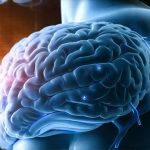Gastroesophageal reflux disease (GERD) is a surprisingly common condition affecting millions worldwide, often characterized by heartburn, regurgitation, and difficulty swallowing. However, its reach extends beyond these typical symptoms. Many individuals experience less obvious manifestations like lightheadedness, particularly when standing after eating. This seemingly unrelated symptom can be profoundly disruptive to daily life and frequently leads to confusion about the underlying cause. Understanding the complex interplay between GERD, digestion, and the body’s regulatory mechanisms is crucial for effectively addressing this issue and improving overall well-being. It’s important to remember that experiencing these symptoms doesn’t automatically equate to a diagnosis; professional medical evaluation is always recommended. If you are struggling with managing trigger meals, consider reading how to soothe your gut afterward.
The connection between GERD and postprandial (after meal) lightheadedness isn’t immediately obvious, which often leads people to dismiss it as simply being “sensitive” or attributing it to other causes like dehydration. However, the physiological processes at play can explain this link. When food enters the stomach, a cascade of events occurs involving hormonal signals and shifts in blood flow. In individuals with GERD, these normal responses can be exacerbated by reflux episodes or esophageal irritation, leading to changes in heart rate, blood pressure, and overall circulatory function. The body’s attempt to manage digestion alongside acid reflux creates an environment where lightheadedness becomes a potential outcome, particularly when transitioning from a seated or lying position to standing. This is why it’s vital to consider GERD as a possible contributing factor if you experience regular dizziness after meals. Understanding why IBS and gas symptoms flare can also help manage related digestive issues.
Understanding the Connection: GERD and Postural Blood Pressure
Postural hypotension, or orthostatic hypotension, refers to a sudden drop in blood pressure when changing positions, most commonly from sitting or lying down to standing. This is normal to some degree – gravity causes blood to pool in the legs – but the body usually compensates quickly by increasing heart rate and constricting blood vessels. In people with GERD, this compensatory mechanism can be impaired, leading to a more pronounced drop in blood pressure and subsequent lightheadedness. Several factors contribute to this:
- Vagal nerve stimulation: Acid reflux can stimulate the vagus nerve, which plays a crucial role in regulating heart rate and blood pressure. Excessive stimulation can cause a slowing of heart rate (bradycardia) or even a sudden drop in blood pressure.
- Esophageal irritation: Chronic inflammation of the esophagus due to acid exposure can also trigger vagal nerve responses, further contributing to blood pressure fluctuations.
- Dehydration: Some individuals with GERD may reduce fluid intake to avoid exacerbating reflux symptoms, leading to dehydration and reduced blood volume, which makes them more susceptible to postural hypotension.
- Medication side effects: Certain medications used to manage GERD, like calcium channel blockers or diuretics (sometimes prescribed for related conditions), can also contribute to lower blood pressure.
The combination of these factors creates a scenario where the body’s ability to maintain adequate blood flow to the brain is compromised after eating, resulting in those frustrating episodes of lightheadedness when standing up. It’s not simply about acid reflux; it’s about how GERD impacts broader physiological functions related to circulatory control. If you are dealing with treatment and employment, it can be helpful to review how to navigate these challenges.
It’s important to note that this isn’t necessarily happening with every meal or every reflux episode. The severity and frequency can vary greatly depending on the individual, the stage of their GERD, the size of the meal consumed, and other contributing health factors. Identifying these patterns is key to understanding and managing the issue effectively.
Digestive Processes and Blood Flow Shifts
Digestion itself requires a significant redirection of blood flow. After eating, blood volume increases in the gastrointestinal tract to support the digestive process. This means less blood is available for other parts of the body, including the brain. Usually, the cardiovascular system adapts by increasing heart rate and constricting peripheral vessels to maintain adequate cerebral perfusion (blood flow to the brain). However, this adaptive response can be blunted in individuals with GERD, especially when combined with vagal nerve stimulation or dehydration.
The process begins as soon as you start eating. Hormones like cholecystokinin are released, signaling the gallbladder to release bile and the pancreas to secrete digestive enzymes. This requires increased blood flow to these organs, potentially diverting it from other areas. Furthermore, larger meals require more significant shifts in blood volume and can put a greater strain on the cardiovascular system. Individuals with underlying GERD may struggle to compensate for these shifts effectively, leading to lightheadedness. For those needing to adjust their diet, balanced meals can be a great starting point.
Consider also that the type of food consumed plays a role. High-fat foods take longer to digest and require more blood flow to the digestive system, potentially exacerbating the issue. Similarly, large carbohydrate loads can cause rapid fluctuations in blood sugar levels, which can impact blood pressure regulation. A balanced diet, coupled with smaller portion sizes, can help minimize these effects.
Identifying Contributing Factors
Pinpointing the exact cause of postprandial lightheadedness requires careful observation and potentially medical investigation. It’s not always GERD alone; other conditions can mimic or exacerbate the symptoms. Here are some key areas to consider:
- Dehydration: As mentioned earlier, inadequate fluid intake is a significant contributor to postural hypotension. Aim for at least 8 glasses of water per day, and increase your intake if you’re physically active or live in a hot climate.
- Medication review: Discuss all medications with your doctor, including over-the-counter drugs and supplements, as some can lower blood pressure or interact with GERD medications.
- Underlying cardiovascular conditions: Conditions like heart failure, arrhythmias (irregular heartbeats), or peripheral artery disease can also cause lightheadedness. A thorough cardiac evaluation may be necessary to rule these out.
A helpful exercise is to keep a detailed food diary and symptom log. Note what you ate, when you ate it, how much you ate, and any associated symptoms like lightheadedness, heartburn, or nausea. This information can help identify specific triggers and patterns that contribute to your symptoms. If you are considering an elimination diet, make sure to consult a doctor first.
Lifestyle Modifications for Management
While medical intervention may be necessary in some cases, several lifestyle modifications can significantly reduce the frequency and severity of postprandial lightheadedness:
- Smaller, more frequent meals: Avoid large meals that put a significant strain on the digestive system and cardiovascular system. Instead, opt for smaller portions throughout the day.
- Dietary adjustments: Limit high-fat foods, excessive carbohydrates, and trigger foods known to worsen GERD symptoms (e.g., caffeine, alcohol, spicy foods).
- Hydration: Maintain adequate hydration by drinking plenty of water throughout the day, especially before, during, and after meals.
- Slow positional changes: When getting up from a seated or lying position, do so slowly and gradually to allow your body time to adjust. Pause for a moment before standing fully upright.
- Compression stockings: Wearing compression stockings can help prevent blood pooling in the legs and improve venous return, reducing the risk of postural hypotension.
These modifications are often the first line of defense against postprandial lightheadedness, offering simple yet effective strategies to manage symptoms.
When to Seek Medical Attention
It’s crucial to consult a healthcare professional if your lightheadedness is severe, persistent, or accompanied by other concerning symptoms. These might include:
- Chest pain: Could indicate a more serious cardiovascular problem.
- Shortness of breath: Suggests potential respiratory or cardiac involvement.
- Fainting (syncope): Requires immediate medical attention.
- Severe headache: May signal a neurological issue.
- Changes in vision: Can be indicative of reduced blood flow to the brain.
A doctor can perform a thorough evaluation, including a physical exam, blood pressure measurements (including postural blood pressure readings), and potentially other tests like an electrocardiogram (ECG) or endoscopy to assess your GERD and rule out other underlying conditions. Remember, self-diagnosis is never recommended. A healthcare professional can provide an accurate diagnosis and develop a personalized treatment plan tailored to your specific needs. They might suggest medications to manage GERD symptoms, address postural hypotension, or treat any underlying cardiovascular issues. If you are experiencing fatigue during or after treatment, cope with fatigue by speaking to your doctor.
Disclaimer: This article provides general information about GERD and lightheadedness after meals and should not be considered medical advice. It is essential to consult with a qualified healthcare professional for diagnosis and treatment of any health condition.


















